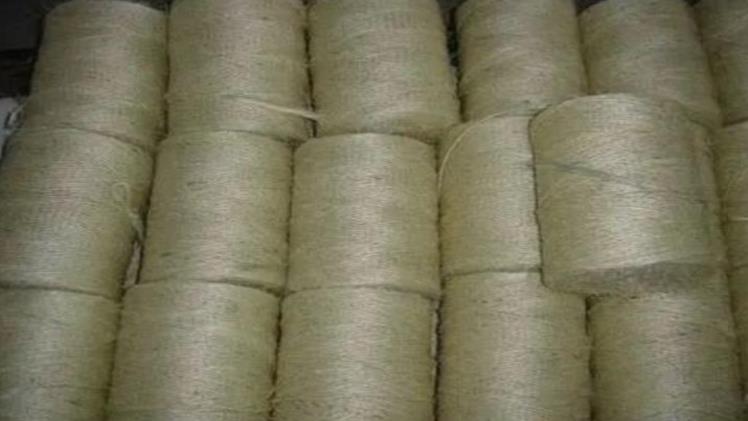Choosing the Right Wholesale Baler Twine for Your Needs

Baler twine is an essential material in agricultural and industrial settings, used to bind bales of hay, straw, and other fibrous materials. With various types, strengths, and materials available on the market, selecting the right wholesale baler twine for your needs can be a daunting task. This guide aims to help you navigate the options and make an informed decision that ensures efficiency and cost-effectiveness for your specific applications.
Understanding Baler Twine
Baler twine is designed to hold bales together tightly, ensuring they remain compact and easy to handle during storage and transportation. It’s made from various materials, including polypropylene, sisal, and other synthetic fibers. Each type has unique properties that make it suitable for different applications. When buying wholesale baler twine, it’s crucial to consider these factors to match the twine to your specific needs.
Types of Baler Twine
- Polypropylene Twine: This is the most commonly used type of baler twine. It’s made from a durable synthetic polymer, offering high strength and resistance to UV light, rot, and mildew. Polypropylene twine is ideal for heavy-duty applications and large bales. It comes in various tensile strengths, typically ranging from 130 to 400 pounds.
- Sisal Twine: Made from natural fibers of the agave plant, sisal twine is biodegradable and environmentally friendly. It’s strong and coarse, making it a good choice for lighter bales and applications where biodegradability is a priority. Sisal twine generally has a lower tensile strength than polypropylene, usually between 90 and 200 pounds.
- Biodegradable Polypropylene Twine: Combining the strength of polypropylene with environmental benefits, this type of twine degrades more quickly than standard polypropylene. It’s a suitable choice for those looking for a balance between durability and environmental responsibility.
Factors to Consider When Choosing Wholesale Baler Twine
1. Bale Type and Size
The type and size of the bales you produce significantly influence the choice of baler twine. Larger, denser bales require stronger twine to prevent breakage. For example, large square bales often need twine with a higher tensile strength compared to smaller round bales. Evaluate the average weight and density of your bales to determine the appropriate twine strength.
2. Baling Equipment
Different baling machines have specific requirements for twine. It’s essential to check the manufacturer’s recommendations for your equipment. Using the wrong type of twine can lead to machine malfunctions or inefficient baling. Ensure the baler twine you choose is compatible with your baler to optimize performance.
3. Environmental Conditions
Consider the environmental conditions where the bales will be stored and used. If the bales are stored outside, exposed to sunlight and moisture, UV-resistant and water-resistant twine like polypropylene is a better choice. For indoor storage or short-term use, sisal twine might be sufficient.
4. Sustainability
With increasing emphasis on sustainability, choosing biodegradable or environmentally friendly baler twine can be a significant consideration. Sisal twine and biodegradable polypropylene offer options that reduce environmental impact without compromising performance.
5. Cost-Effectiveness
Buying baler twine can offer significant cost savings, but it’s crucial to balance price with quality. Cheaper twine might save money upfront but can lead to increased breakage and inefficiency, ultimately costing more in the long run. Evaluate the total cost of ownership, including durability and performance, to ensure you’re making a cost-effective choice.
Practical Tips for Buying Baler Twine
1. Evaluate Suppliers
Not all suppliers offer the same quality of baler twine. Research potential suppliers, read reviews, and ask for samples if possible. Ensure they have a good track record of providing reliable, high-quality products.
2. Consider Bulk Discounts
Buying in bulk can lead to significant savings. Many suppliers offer discounts for larger orders, so assess your yearly usage and consider purchasing in bulk to take advantage of these discounts.
3. Check for Consistency
Quality control is vital when buying wholesale. Ensure the twine you purchase is consistent in strength and thickness to avoid variations that could impact performance. Reliable suppliers should provide product specifications and quality guarantees.
4. Storage and Handling
Proper storage is crucial to maintain the integrity of your baler twine. Store twine in a cool, dry place, away from direct sunlight and moisture. Proper handling and storage will extend the life of the twine and ensure it remains effective when needed.
5. Technical Support
Choose a supplier that offers technical support and advice. They can help troubleshoot issues, recommend the best type of twine for your needs, and provide valuable insights into optimizing your baling operations.
Conclusion
Selecting the right wholesale baler twine involves considering the type and size of your bales, the equipment you use, environmental conditions, sustainability concerns, and cost-effectiveness. By understanding the different types of baler twine available and evaluating your specific needs, you can make an informed decision that enhances the efficiency and effectiveness of your baling operations. Investing time in researching and choosing the right supplier ensures you receive a high-quality product that meets your requirements and supports your operational goals.



